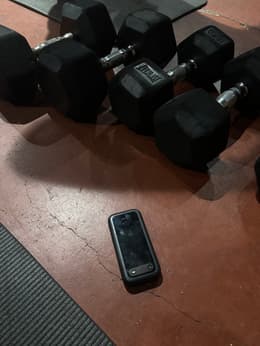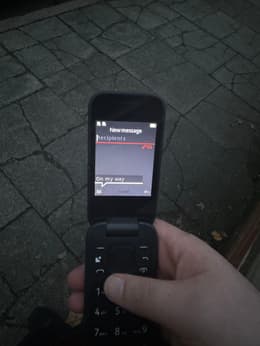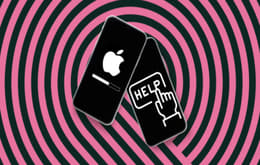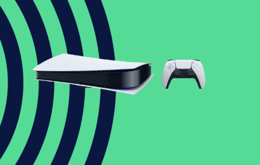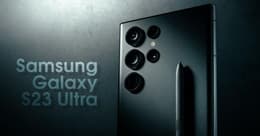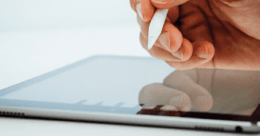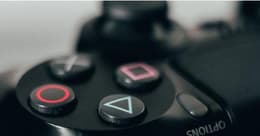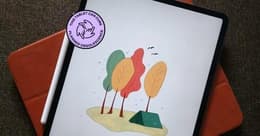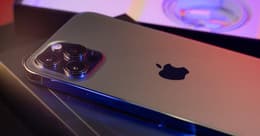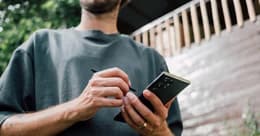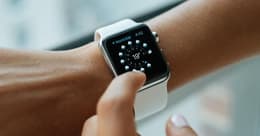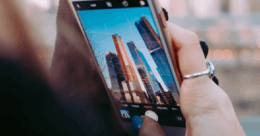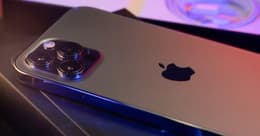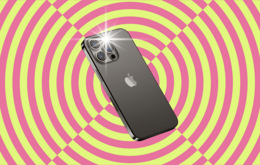
I swapped my smartphone for a dumbphone for a week and was surprised by the result
Updated on December 18, 2024
December 18, 2024
8 mins read
Rhys Thomas
Freelance journalist, editor and consultant
Writer and self-confessed phone addict Rhys Thomas ditches his iPhone for a dumbphone in the ultimate modern-day experiment. Here’s how he got on…
At heart, I’m an analog king. I’d love nothing more than to walk around with a notepad, a pen, and possibly a film camera. Sadly, we’re in the year 2024, and to make matters worse, I work in media – so I am pretty much constantly tied to a screen of some sort. This had always bothered me, but even more so when I started being shown my screen time on a weekly basis – typically it’s somewhere between 6 and 7 hours a day, and that’s without the 8 or so hours I spent on my laptop working. As someone with bad eyes who grew up in the English countryside, this simply hurts my soul (and my sleep, and also my concentration levels).
I’ve often tried restricting my screen time through the use of apps, or blocking the less essential and highly addictive social media apps – but these measures haven’t been enough. I have found I just break the rules the second I can.
Dumbphones, as they’re now called, are an intervention I’ve long considered. I was 11 when the first iPhone came out, so I have some vague memories of a time where these bricks were prime technology: playing Snake, sending songs via Bluetooth, and texting by pressing the same 8 buttons multiple times. Happy, innocent, freeing memories. I decided to push myself into a harder form of restriction against the doomscrolling that had become an unnecessary burden on my day – I joined the dumbphone squad.

DAY 1
Friday
My Nokia 2660 Flip arrives, it’s small and plastic. Closed, it’s about two-thirds the size of my iPhone 15 Pro and weighs a fair bit less too. In my pocket, it feels less like my own portable digital world and more like a pager, perhaps even a toy, and small enough to be forgettable. I jotted some essential numbers down from my iPhone, loaded the SIM in, and added the contact details. Or I went to, and then I was faced with a whooshing noise somewhere between a ‘sent message’ sound and a plunger, every time I hit a button. I was sitting in a cafe, and this quickly generated a look or two, so I turned the keypad volume down from the pre-set 6 to 0, before continuing.
The first hour or so felt very liberating, though the weight in my pocket was heavy. I was looking forward to going home and throwing my smartphone in the drawer. I realized that if you opened my skull, I think you’d see that the bone had started to bleach blue from all the screen I have accumulated through my eyes in this lifetime.
DAY 2
Saturday
Over the weekend I had a few things on, this would be the first real test for the phone. First, I had to commute to west London to meet a friend for coffee. Given I didn’t know the cafe, I had to plan this in advance the night before – I used my laptop to plan a route and took a photo of the route on the phone. All went smooth enough, but I did have to use extra brain power when I got near the cafe, to navigate the streets. It was a welcome challenge though, looking up at street signs is pretty mindful, it turns out.
Afterwards, I headed to the pub to see other friends. I had to carry my wallet anyway as it held my ID, but my natural reflexes meant that I was often pulling out my dumbphone to try and pay for my drinks. Getting there, and getting home, also proved difficult without the use of a map to be sure I was walking the right way to the station – and without access to Uber, I had to be very sure I was taking the right night busses. Overall I would say I was anxious without my smart comforts, but also not as anxious about my phone getting stolen.
DAY 3
Sunday
I spent most of Sunday in bed, sue me. This gave me time to scroll through the phone properly. I discovered that for some reason the phone comes with a Facebook app downloaded. I haven’t used Facebook meaningfully in about 8 years, so this was no risk to a screen-time relapse, but still for some this could be an obstacle. There are also GAMES. You get Snake Xenzia on the phone – I am very good at Snake Xenzia. I got 148 on my first go, it took about 7 minutes. This could be very dangerous. I decided there and then to see if I could delete Snake Xenzia, and you can’t, but thankfully the novelty wore off within 20 minutes, and with nothing better to do, I read a book until I was bored and then eventually crawled out of bed to get some food and start my day.
DAY 4
Monday
I was at home all day so this was easy, until I was bored. Normally, I find I’m switching off from work at half an hour intervals and going on my phone until I remember that I actually have a job to do. Not today. I would hit my boredom threshold and, with nothing better to do, just get back to my work. I block social media on my computer during the working day, so was truly distraction-free. I got a fair bit done, which was good. What was concerning was just how much my brain hurt trying to get through the day without distractions and dopamine hits.
DAY 5
Tuesday
It happened, I went to the shop without my wallet, accustomed to using my smartphone to pay for things. I got to the counter, felt for my phone, and thought: shit, I have no way of paying for my food shop. I had them save the basket, walked home, got my wallet, and went back to pay. This was annoying, but it was also my own fault, I felt silly for placing so much dependence on one inanimate object.
DAY 6
Wednesday
I have realized I’m a lot less distracted, especially at night and first thing in the morning — no more mindless scrolling for half an hour or more and feeling like I’ve wasted the day. No more accidentally staying up until 3am and being exhausted in the morning. These were pretty great benefits. I was getting a lot more work done and finding pleasure in doing it (I seemed to be replacing my dopamine from random reels with trying to take extra pride and fulfillment from my work).
DAY 7
Thursday
I started to feel a bit lonely by Thursday. While I was in a better mood, and concerned with just how much different my life felt without a smartphone, it was undeniable I felt disconnected from the world. I had told some close friends to text me if they wanted anything, and some did, but it took so long to reply that it was a pain in the ass and in the end I just had relatively little contact with anyone. My partner and I phoned each other most evenings because texting was arduous which was nice, but I missed those light pieces of conversation through the day. I’m sure with time this is something I’d get used to, and the voids I felt could be filled with productive things like going for a walk, but still, the truth is I was unsettled. This is a notable life adjustment. It is fair to assume I’d be out of the loop with friends and less in touch culturally without a smartphone, this might not be bad, but is a change.
Final thoughts
The week ends and I’m looking at the apps on my smartphone. I’m remembering that at one point I tried to touch the screen on my dumbphone to open the messenger app like the dummy I am. Looking through, I realize that of the 106 apps I have downloaded, I missed a handful: Whatsapp, Instagram, Spotify, CityMapper, Gmail, and my banking app. The latter I didn’t need to use during the week, but had I needed to, this would have been a true pain in the ass to navigate without a phone.
In general, I felt refreshed, more peaceful and more able to concentrate. These were all felt significantly and made me frequently think about how crazy it is that a little glass screen can completely control my life. My screen time averages around hours a day. I assume it was closer to half an hour on my dumbphone – that’s well over a day claimed back in the week. You can do a lot with an extra day each week. Granted, some of this time was spent having to take longer navigating my way places, and walking home because I’d forgotten my card, but still, the power of the dumbphone is incredibly appealing.
The basics of the phone worked well. I could hear phone calls, I could text, the alarm clock is effective. The camera worked perfectly fine for taking photos of things I’d have to take photos of (remembering a tube route, a receipt, etc.) but I felt far less compelled to take photos generally, knowing they’d look crap. This wasn’t such a bad thing, as I have thousands of photos on my iPhone that I know I will never look at again because of a general compulsion to capture something in the moment. I also enjoyed catching up with friends and saying “I saw this today” instead of having sent them a photo previously. All in all, this is a life I could get used to (unless I was abroad, smartphones are simply too handy abroad).

